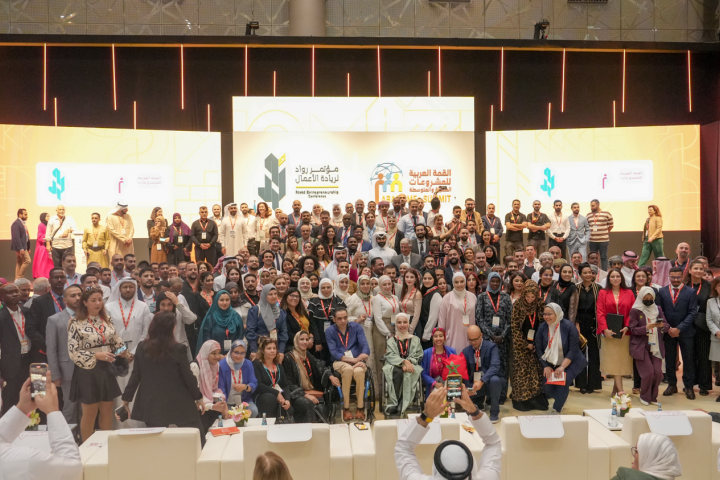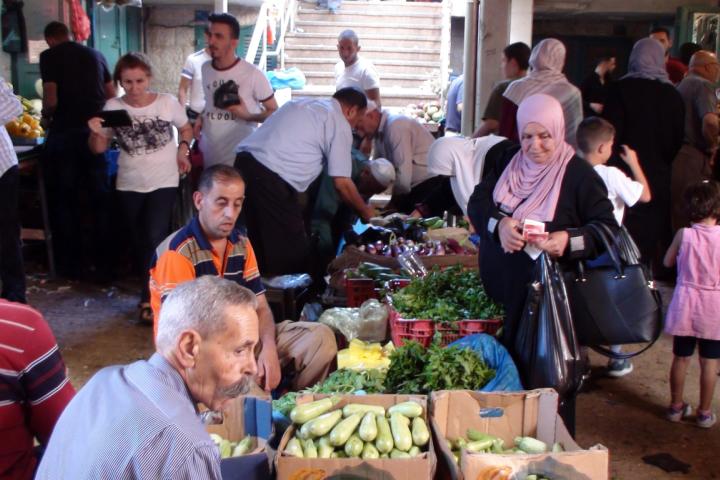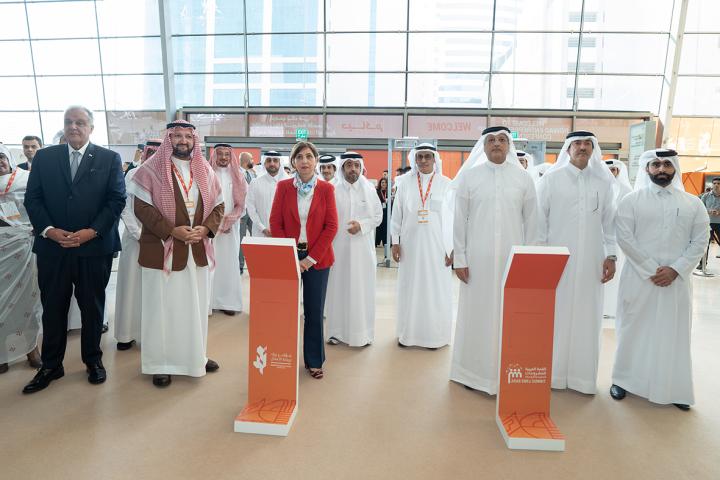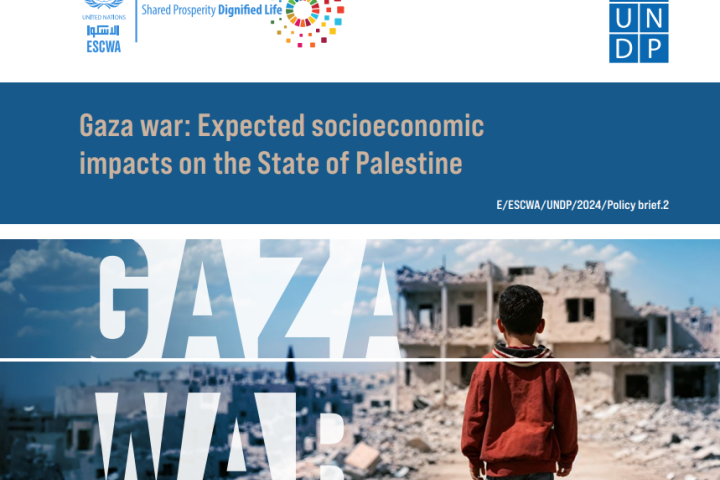Lebanese House Speaker Nabih Berri opened today ESCWA’s 26th Ministerial Session held under the theme “Youth are Change” at the UN House, Beirut, amidst a crowd of Arab ministers, officials and media representatives. In addition to the statement of Berri, the opening of the Session featured statements by UN Secretary-General Ban Ki-moon, delivered on his behalf by ESCWA Executive Secretary Bader AlDafa, who read ESCWA’s statement well. Secretary-General of the Gulf Cooperation Council Abdulrahman Bin Hamad Al-Attiyah also addressed the Session, and Yemen’s Deputy Prime Minister and Minister of Planning and International Cooperation Abdul Karim Alarhabi delivered a statement in his capacity as Chairman of ESCWA 25th Session.
With Jordan assuming the Chairmanship of the new Session, its representative, Minister of Planning and International Cooperation Jaafar Hassan, also gave an opening address. Berri said that he is sponsoring an ESCWA activity for the second time because of “the diversified roles assumed by different UN entities, specifically ESCWA, whose resolutions and activities influence not only Lebanon, but also its Arab neighbors and the region as a whole.” Berri called for the establishment of concrete youth-centered strategies, and for setting priorities that would create opportunities to explore youth energies and capabilities in all fields. He added that through its work on youth, ESCWA has no doubt discovered that the weakness of political commitment of parliamentarian groups and others, has paved the way for governments to delay action in this regard. “This comes in addition to the severe shortage in helpful information, data and statistics that enable us to have a clear of reality and draw up necessary recommendations and decisions,” he said. Concluding his remarks, Berri expressed hope that the great gap in the transitional phase between higher education and labor markets would be bridged, calling for the establishment of higher education councils in the region that match the outcomes of higher education with labor market needs. In his address to the meeting, Ban hoped that focused discussions on youth as one of the Session’s major topics would lead to recognizing their contributions and advancing their full and effective participation in all aspects of society. The Secretary-General strongly welcomed the adoption of a declaration on youth that renews the commitment to effective, long-term policies tailored to the priorities and aspirations of young people. He also welcomed the focus on human and institutional capacity-building, given the vital role played by public sector modernization and administrative reform for the attainment of national development goals and for the building of resilient states. He reiterated his confidence in the provision of credible and creative policy options that are tailored to local needs and that will lead to more effective government, stronger communities and a brighter future for all in the ESCWA region. AlDafa, for his part, emphasized “what ESCWA has managed to achieve during the 35 years of its existence, is the continuity in accomplishing its development mission despite the increasingly severe conditions faced by the region and its member countries. The Regional Commission remains fully committed to tackling such challenges for the benefit of the region.” He pointed out the need for a constructive critical review of approaches in addressing youth development issues. “The objective of such review is to find practical solutions that are compatible with demographic, social and economic specificities of the region and of the moment, and to identify and optimize the opportunities and challenges posed by globalization, which affect youth and their social performance.” He concluded by saying “the achievements we are seeking, even with the best of intentions, cannot be brought to fruition without an appropriate environment.” As for Attiyah, he commended the regional and vital role assumed by ESCWA in pushing for constructive interaction among member countries and providing institutional framework for closer cooperation among countries of the region in order to achieve economic and social development. He remarked that GCC has achieved much on the various political, military, security, environmental, youth and sports fronts. “Gulf countries have adopted programs for vocational orientation that help youth in selecting professions that match their capabilities and preferences, thus inciting them to change their perspective on certain crafts,” he added. Hassan tackled in his statement the increase of population growth rates, namely youth, referring to statistics and reports issued by ESCWA, which clearly show that “our societies have the highest rates of under 25 year-olds globally, amounting to around 60 per cent of the Arab region’s population. This requires great efforts in securing job opportunities for them and holds us accountable for proper human resources planning and institutional capacity-building.” He added that Jordan looks forward to hosting ESCWA Technology Centre, which “we hope will become an important platform in supporting, disseminating and building knowledge and innovation in this vital field of development.” In his statement, Arhabi called on developed countries to assume their responsibilities in laying down new foundations for global economy that are just for developing countries, enabling them to tackle challenges that face them and achieve basic development goals. He stressed the importance of opportunities and challenges facing Arab youth as they are the “effective tool in the process of economic and social development, and represent the majority of the Arab population.” Arhabi also linked the topic of human and institutional capacity-building to good governance because of its importance in the organization, and efficiency of utilizing public resources in proficient and transparent ways that strengthen development efforts and social peace. After the opening, two roundtables were held. The first grouped young university students from different Arab countries with the participating ministers, whereby discussions focused on major opportunities provided to this social strata and the challenges it faces. The second roundtable tackled the issue of human and institutional capacity-building.
ESCWA’s 26th Session had opened at the senior officials’ level on Monday 17 May. Jordan was chosen as chair for the two coming years, while United Arab Emirates and Bahrain were selected as vice-chair, and Syria as rapporteur. Discussions during the last two days revolved around the achievements of ESCWA’s seven subprogrammes, the follow-up to the implementation of the resolutions adopted by the Regional Commission at its twenty-fifth session, the technical cooperation programme and regional advisory services to member countries, the financial status of the Regional Commission, and the reports of its subsidiary bodies on their sessions. Participants also discussed upgrading the Centre for Women and the Emerging and Conflict-related issues Unit to divisions, in addition to the progress in the establishment of ESWCA’s Regional Technology Centre in Jordan.



